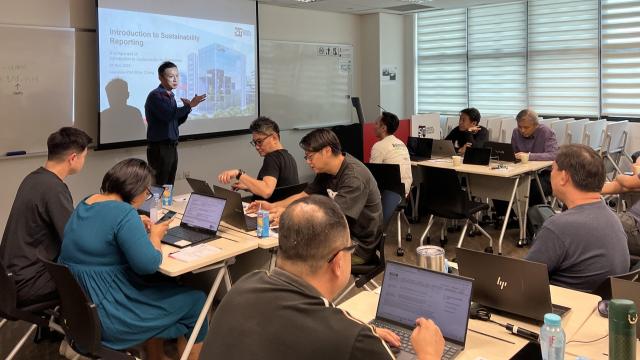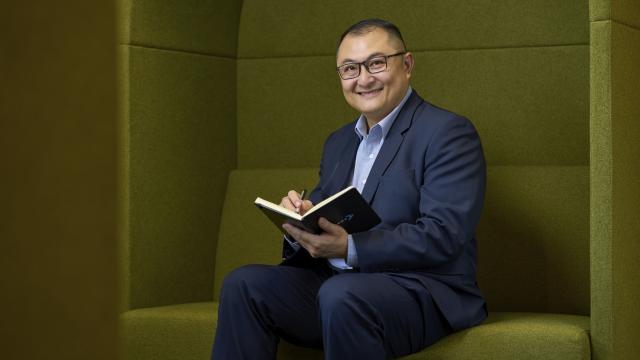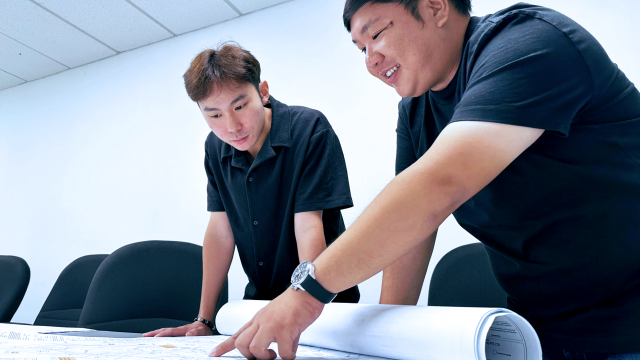The annual SIT Teaching Excellence Award is presented to outstanding faculty members who have gone above and beyond their roles as educators. In this first of two features, some of this year’s recipients share how they inspire the growth mindset in SITizens.
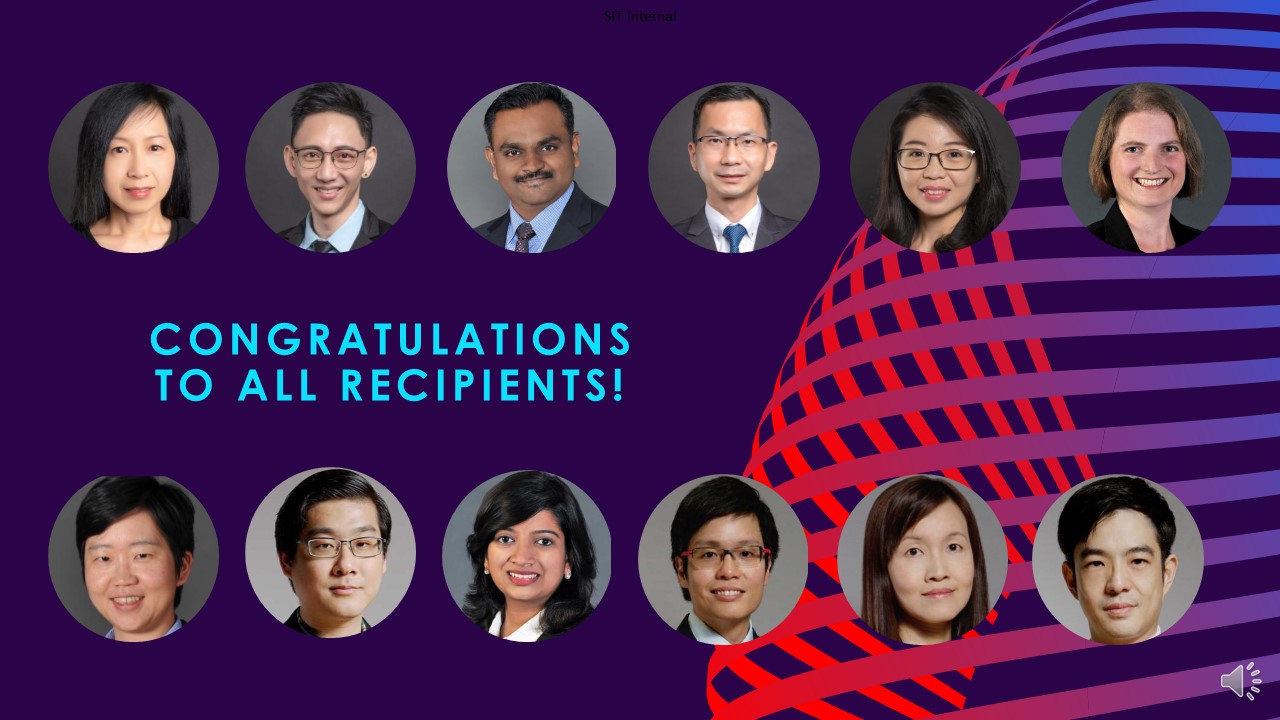
The annual SIT Teaching Excellence Award (TEA) serves to value the importance of teaching and to recognise exceptional faculty members for their significant contributions. This year we congratulated 12 recipients of the SIT TEA for AY2020/21!
These educators were nominated by SITizens and selected based on their excellence in teaching, dedication to student development, as well as adoption of innovation in their teaching and assessment methods.
Empowering SITizens to Take Charge of Their Growth
The best form of teaching is not to merely equip students with the necessary skills, but to cultivate in them a mindset for continuous growth and lifelong learning. We shine the spotlight on TEA recipients who have instilled in their students a growth mindset – to constantly challenge themselves not only to become better professionals in their field, but better people.
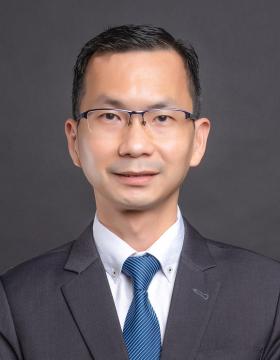
Steven Tay, Associate Professor, Engineering
“I strive to create a dynamic and welcoming space for learning, by engaging students whilst encouraging them to adopt a growth mindset,” said A/Prof Steven Tay from the Engineering cluster. He believes that his role as an educator is to nurture and create genuine interest in learning among his students through the sharing of knowledge integrated with industrial applications. He constantly strives to enhance student learning through real-life industrial experiences and maintains an active learning environment.
“My teaching philosophy is when the knowledge is relevant, there will be more active discussions, enabling students to challenge themselves to discover more, which will, in turn, make learning more effective,” he said. This growth mindset is something he hopes SITizens will adopt well into their careers.
In addition, while supervising his students’ projects, A/Prof Tay seizes the opportunity to impart transferable skills on top of conventional engineering skill sets. For example, A/Prof Tay led a team of SITizens from the Mechanical Engineering programme on a social innovation project, which involved the development of a Smart Meter to better manage water usage and cost for low-income households. Through this project, the students applied core engineering skills to product safety and usage to collect data. A/Prof Tay then pioneered a case study based on this project, which demonstrated the learning outcomes for students beyond their core skill sets, and how what they do could contribute towards sustainability and society.
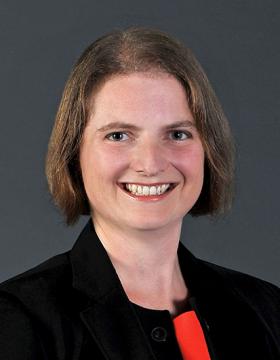
Karina Dancza, Associate Professor, Health and Social Sciences
A/Prof Karina Dancza, from the Health and Social Sciences cluster, feels that it is a privilege to be able to guide students’ learning in a way that informs their future practice. In her teaching, A/Prof Dancza emphasises key concepts that are critical to students entering their profession.
She constantly creates a nurturing environment that enables students to thrive through applying evidence-based pedagogy, co-designing learning with students, and critical reflection. “I design learning experiences that encourage students to be curious and ask questions. By using coaching approaches to promote critical thinking, we can create a safe learning environment for reflection and real-world application of students’ ideas,” she said.
One of her students shared, “This module [by A/Prof Dancza] has allowed me to reflect on my practice during my clinical placements and how I could improve in future. It has taught me the true importance of being client-centred.”
A/Prof Dancza authored the textbook, ‘Implementing Occupation-Centred Practice: A Practical Guide for Occupational Therapy Practice Learning’, which is currently housed in over 170 libraries internationally. She is due to release her second book, ‘Supervision for Occupational Therapy: Practical Guidance for Supervisors and Supervisees’ in October 2022.
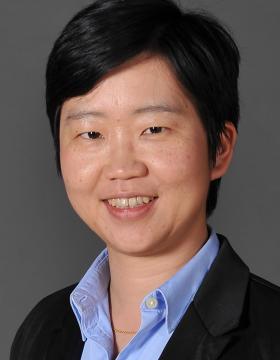
Yeh I-Ling, Assistant Professor, Health and Social Sciences
“I believe in the innate curiosity in students as human beings and the intrinsic motivation to achieve their life goals,” said Asst Prof Yeh, who believes that a supportive teacher-student relationship, underpinned by trust, is critical to facilitate learning.
Her goal is to get her students to learn how to discover themselves to own knowledge. She shared, “I like to guide students to figure out the answers step by step, to show them that they can learn the systematic way to clarify their own doubts. By using this method of guided discovery, students are empowered to believe that they are capable in verifying their hypotheses instead of relying on instructors or clinical educators.”
One student shared, “I’m appreciative of Asst Prof I-Ling, who is ever ready to answer any queries that we have. Also, she helps us sharpen our clinical reasoning by challenging why we choose certain approaches instead of telling us directly whether the approach is right or wrong.”
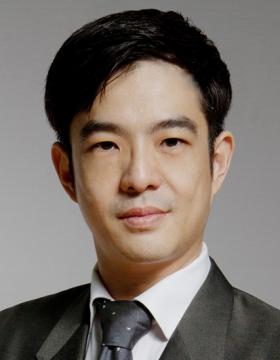
Joshua Chan, Senior Professional Officer
Joshua Chan is a strong believer that the passion and motivation behind learning is integral to the knowledge transfer process. Therefore, he takes extra care to cultivate the interests of his students and challenges them to push the boundaries during their learning journey.
“The responsibility of learning is shared equally by the one teaching and the one learning,” Joshua explained. “As educators, we should aim to inspire those we teach, but also never stop learning ourselves. This creates a positive environment for knowledge exchanges and learning to go both ways.”
“Mr Chan is passionate about looking after students under his charge,” said one of Joshua’s students. “He often discusses case studies with us to make us think beyond our lab work and consider responsible engineering practices and safety issues.”

